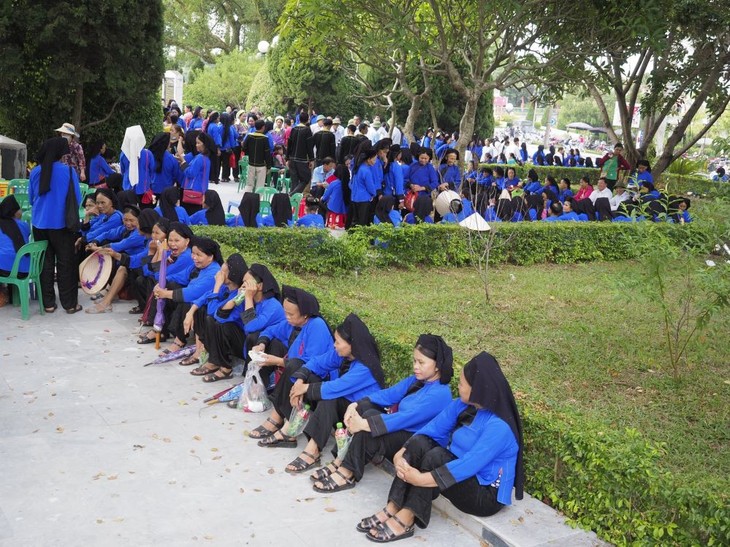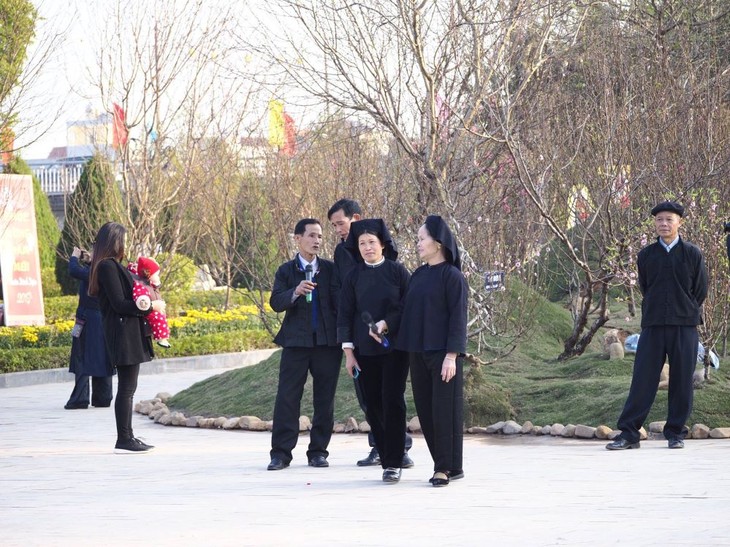(VOVWORLD) - Co lau is the folk poetry singing of the Nung Phan Slinh people in Lang Son province. The poetry describes the wedding customs of the Nung people, including the proposal, the practice of compatible ages for marriage, the wedding announcement, and the wedding ceremony.
 The Nung in Lang Son province go to a festival. (photo: VOV) The Nung in Lang Son province go to a festival. (photo: VOV) |
In the past, co lau singing was invariably used to enliven the atmosphere of a wedding. Co lau singing accompanies the ritual of taking the bride to the groom’s house and continues the following day until the wedding party ends. The groom’s representatives sing to ask the bride’s family to allow them to take away the bride, to pay their respects to both families, and to accompany the wedding ceremony.
Co lau singing continues throughout the day and night. The daytime singing is performed mainly by the matchmakers, the bridesmaids, and the groomsmen. At night everyone participates in the co lau singing, particularly the friends of the bride and groom. The lyrics of the nighttime singing focus on the theme of eternal love.
The lyrics encourage everyone to live better lives and be more virtuous, and urge the newly-wed couple to behave properly in their new life.
Lang Thi Bay of Quang Lac commune, Lang Son city, who is often invited to sing co lau for weddings of the Nung Phan Slình, said: “I remember, when I was young and was often invited to be a bridesmaid, young people sang co lau all day and all night long. We sang a steady call and response. People who can sing co lau and are well-spoken receive frequent invitations.”
 Nung people sing co lau at a Spring Festival. (photo: VOV) Nung people sing co lau at a Spring Festival. (photo: VOV) |
Most co lau poems are written in verses of 5 to 7 words. There are a number of verses that most Nung boys and girls know by heart, but co lau is an improvisational style, so singers can compose lyrics spontaneously to show off their skill in using rhetorical forms such as comparison and metaphor.
Hoang Choong, a Tay-Nung folklore researcher, said: “Among folk singing genres, co lau of the Nung is unique. It involves singing poems without musical accompaniment. They don’t sing it every day, just on special occasions such as weddings.”
Lang Son province has collected and documented co lau poems and recorded performances to preserve the genre. It has also adopted policies and financial support for ethnic arts and culture clubs in villages and communes. Community movements, competitions, and folk art classes have been organized.
People’s Artist Trieu Thuy Tien, Vice Chairwoman of the Folk Song Preservation Association of Lang Son province, said: “The Nung Phan Sling in Quang Lac commune, which is near Lang Son city, continues to sing co lau at weddings. I hope the government will help the Nung people preserve co lau singing for future generations.”